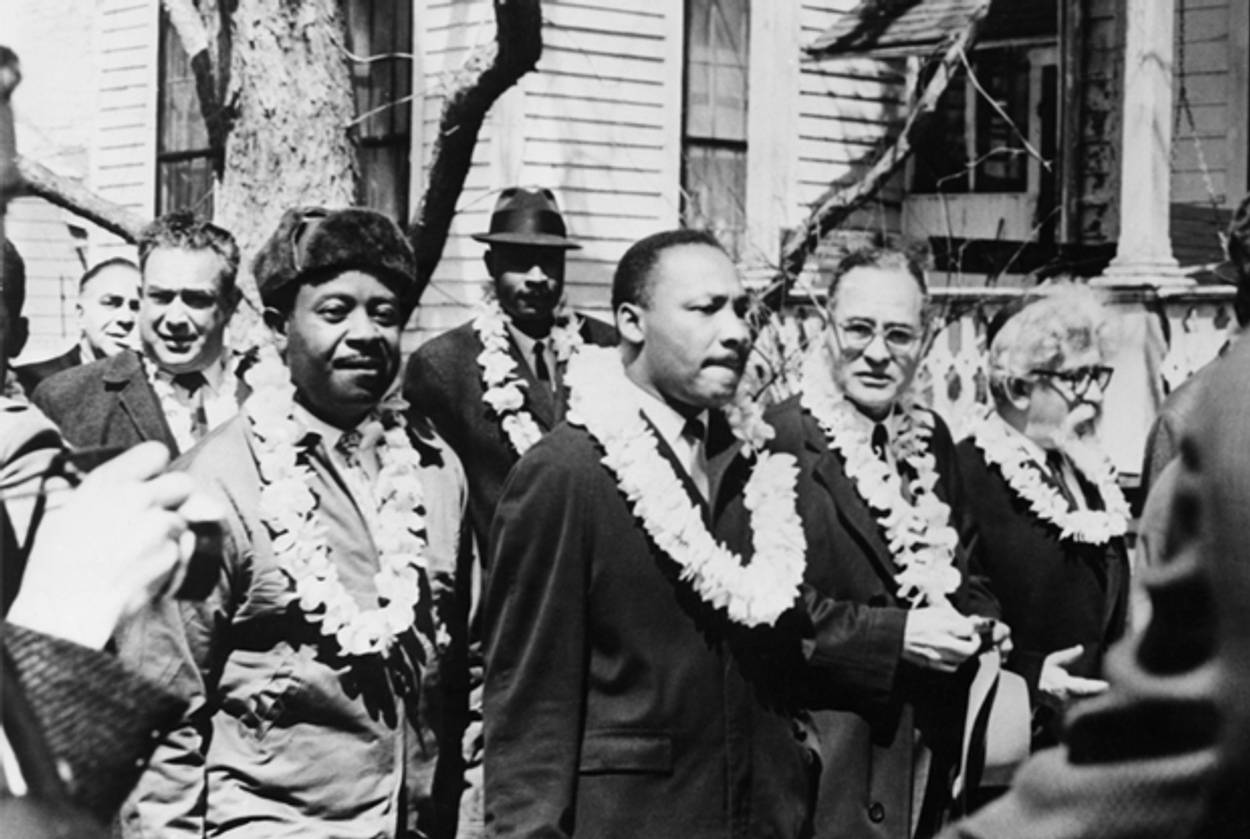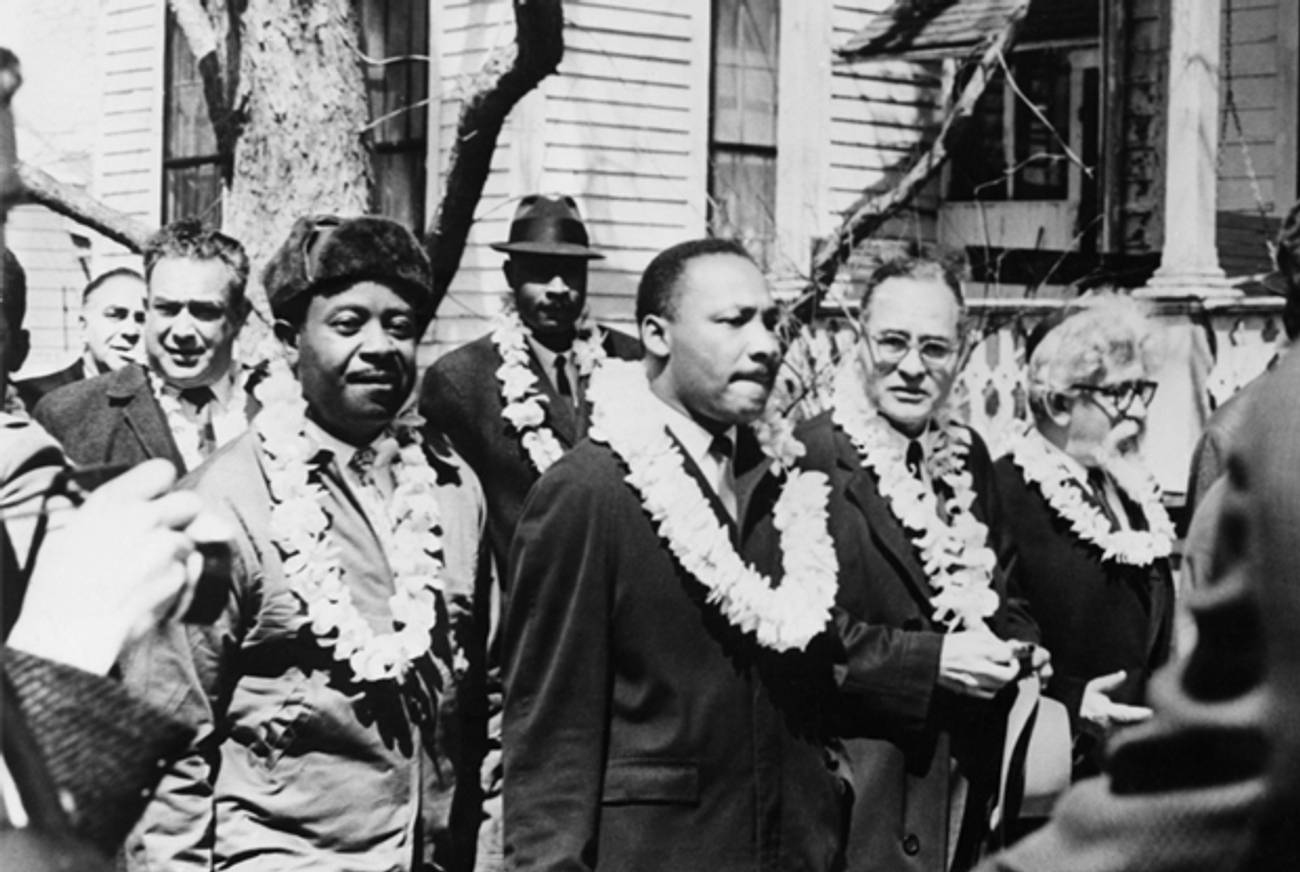Why Jews Were Drawn to the Civil Rights Battle
It was a moral imperative, but it also fueled a different urgency among Jews




One afternoon in the 1960s, when I was a very young boy growing up in Atlanta, I wandered out the front door into the “field.” The “field” was the lawn of our North Druid Hills home—about a third of an acre in size—and when I was four years old, the grass was taller than me.
Outside was a black man named George, who mowed our lawn and did odd jobs for my family and others in the neighborhood.
My father admired George, whom he saw as an honest worker, thorough and faithful. George was strong and had skills we did not possess. (He could single-handedly put up our gigantic sukkah in an hour.) My father, with a rabbi’s gift for metaphor, saw in George’s physical strength, a strength of character. He viewed George as a symbol of his people. “Look at George’s perseverance and honor, despite being part of an oppressed nation,” he said, though probably not in those exact words.
This was news to me. I was too young to have known that blacks were oppressed.
“I thought Jews were oppressed,” I said.
“Not in the same way,” he told me. And he left it at that. I was curious, but too young to have a complicated discussion with him about it. But his statement stayed with me.
Blacks were oppressed, Jews were oppressed, but we were not the same. Our oppression was not the same.
And yet many of the Jewish adults around me identified intensely with and took up the cause of the civil rights movement as if it were our own. Most notably, our cousin Rabbi Abraham Joshua Heschel famously marched in Selma in 1965. For religious and secular Jews alike, the cause was a moral imperative. Their story, the African-American story, was in some way our story. We knew what it meant to be hated. What’s more, they had their very own Moses, Martin Luther King Jr., a man who quoted and infused life into scripture better than any rabbi I ever knew.
But the fight for civil rights also offered the Jewish community an opportunity. It dovetailed with a deep messianic urge that had been both reborn and transfigured in 20th century America. American Jews had become mesmerized, intoxicated even, by the idea that we no longer had to live life in humiliating passivity waiting for the Messiah. Instead, we, like our black brethren, could become active in ‘forcing the hand of the Messiah’ through overt action and protest. In other words, we could shape our lives with our hands, feet, mouths, and hearts as American blacks did the same. And so we marched with them.
Perhaps the rift between blacks and Jews that began in the late 1960s was rooted in the idea that some African Americans sensed that with all our good intentions we had piggybacked on them. We had used the muscularity of their cause not purely out of a Jewish love of righteousness, but because it gave us a chance to establish our own house in America, cashing in our secularized messianic yearnings on their backs, much as we had used George’s strength to build our sukkah.
The irony, of course, was that despite our mutual successes, neither blacks nor Jews quite achieved the normalcy they sought—but for completely different reasons. For Jews, the American experience was something of a Faustian bargain. Our acculturation meant a surrender of our collective self. By century’s end, we had lost as much as we gained.
African Americans also succeeded in their struggle: Who in the 1960s could have imagined a black president, attorney general, lawmakers, and judges? Attitudes have changed, and life has changed. Yet King’s words about living “on an island of poverty in an ocean of material wealth” still rings utterly true. The African American population as a whole still suffers persecution, poverty, and deprivation as no other group in America does.
As Martin Luther King Day approaches, the words of my father when I was four years old come back to me: Blacks were oppressed. Jews were oppressed, but the oppression is not the same.
Previous: Martin Luther King Jr. and the Jews of Atlanta
Related: The Power of a Circle: Standing Hand-in-Hand to Overcome Discrimination
The Plot for America: Remembering Civil Rights Leader Joachim Prinz
Alter Yisrael Shimon Feuerman, a psychotherapist in New Jersey, is director of The New Center for Advanced Psychotherapy Studies. He is also author of the Yiddish novel Yankel and Leah.